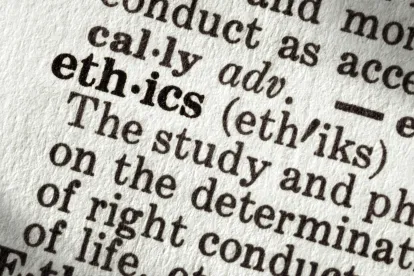At some point in their careers most lawyers will have a client die during the course of representation. When death occurs, what are the representing attorney’s ethical obligations to the other side and to the court?
On January 4, 2024, the Virginia Supreme Court issued Legal Ethics Opinion (LEO) 1900, which instructs that a lawyer “must disclose the client’s death to opposing counsel or the opposing party” before engaging in any “further substantive communication.” With respect to the court, the lawyer “must disclose” the death “no later than the next communication with, or appearance before,” the tribunal.
AUTHORITY
The foregoing duties are rooted in the principle that the attorney-client relationship is automatically terminated upon the client’s death. See Restatement (Third) of the Law Governing Lawyers, § 31 “Termination of a Lawyer’s Authority,” Comment e. Further, the LEO cited to Formal Opinion 397 of the American Bar Association Standing Committee on Ethics and Professional Responsibility, which provides, in part, that failure to disclose the client’s death is tantamount to making a false statement of material fact under Rule of Professional Conduct 4.1(a).
'Virginia Rule of Professional Conduct 4.1 provides that:
In the course of representing a client a lawyer shall not knowingly: (a) make a false statement of fact or law; or (b) fail to disclose a fact when disclosure is necessary to avoid assisting a criminal or fraudulent act by a client.
Based on the foregoing authorities, LEO 1900 instructs that under Rule 4.1(a) it is ethically impermissible for an attorney to, by “any act or omission,” perpetuate the belief that the attorney still represents the client or “has any authority to act on behalf of” the deceased client. LEO 1900 also cites with favor the conclusion expressed in Formal Opinion 397 that an attorney’s failure to disclose a client’s death during a court appearance violates Rule 3.3’s prohibition regarding making a false statement of material fact to a court.
LEO 1900 does note, however, that it is ethically permissible for an attorney to delay having “any substantive communication with opposing counsel” while “for example, determining whether there is a representative of the client’s estate and whether the representative wishes to hire the lawyer to continue to pursue the client’s claim.”
Finally, LEO 1900 expressly overrules LEO 952, which concluded, in part, that an attorney can “accept a settlement offer without disclosing the client’s death absent a direct inquiry about the client’s health….” Instead, following LEO 1900, an attorney “cannot accept or make an offer of settlement on behalf of the deceased client, even if the lawyer discloses the client’s death…[because] the lawyer has no client and no authority to accept or make a settlement after the client’s death” until such time as an administrator of the estate or success is appointed and retains the lawyer.



 />i
/>i

